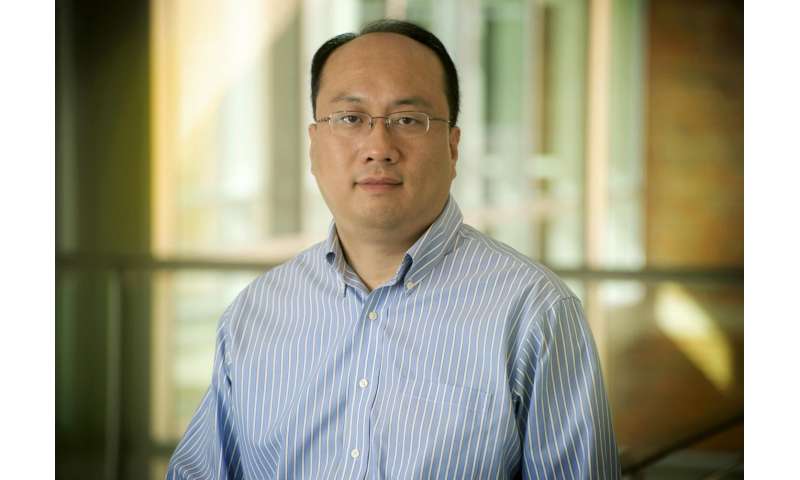UTA researcher wins grant to use data mining to improve depression diagnosis, treatment

Current treatment for depression often calls for doctors to pore over pages and pages of notes taken by their patients, a huge task when multiplied by numerous patients. A University of Texas at Arlington researcher is working to create an automated system that will analyze those notes for patient-related knowledge discovery and also make them available as a training tool for new therapists.
Heng Huang, a professor in the Computer Science and Engineering Department, won a three-year, $500,000 National Science Foundation grant to use data mining to efficiently catalog and track depression patients' "thought records" so that doctors and therapists can better identify patients' treatment needs.
One in 20 Americans suffers from depression, according to statistics provided by the Centers for Disease Control. The most effective current treatment for depression is cognitive behavior therapy, where a doctor or therapist talks to the patient and asks questions. The patient answers the questions and keeps a record of his thoughts throughout each day between sessions - a "thought journal" - which the doctor can analyze and use to see if the patient's condition is improving or getting worse.
"Each patient will write dozens of thoughts each day, and it can be very difficult to get through them all," Huang said. "Nurses are not trained to analyze these journals, so it is up to the doctor or therapist to read and analyze the information contained in them. Using data mining, it becomes much easier to analyze the thoughts and apply them to a treatment plan."
The data also can be used to train new therapists because they can be provided with a set of data and make a recommendation, then compare their recommendation to the course of action that was actually prescribed.
"This is hands-on training that can be very beneficial," Huang said.
Most thought records are handwritten, although an increasing number are now video recorded. Huang will develop multiple new computer models to read text and automatically analyze it. These computer models are based on artificial intelligence, using similar technology to that used in driverless cars.
Hong Jiang, chair of UTA's Computer Science and Engineering Department, is confident that this new grant will lead to innovative ways to work with patients who are dealing with depression, underscoring the University's emphasis on data-driven discovery contained within the Strategic Plan 2020: Bold Solutions | Global Impact.
"Depression affects millions of people in this country," Jiang said. "Dr. Huang's transformative research could positively change how doctors are able to treat patients. This type of 'outside-the-box' application of computer science and engineering is what makes UTA stand apart."
The NSF grant is the latest in a string of major grants for Huang. His research also has earned:
- A $2 million grant from the National Institutes of Health to analyze complex data and use imaging genomics to predict a person's probability of contracting Alzheimer's Disease
- A $750,000 NSF grant to protect personal, electronic healthcare data while ensuring that the anonymous records can be used for secondary analysis and improved health care.
- A $600,000 NSF grant to develop an interactive database of gene expressions of the fruit fly.
- A $900,000 NSF grant to mine electronic medical records data to help physicians personalize patient treatment, predict health care needs and identify risks that can lead to readmission.
Huang is collaborating with Dr. Robin Jarrett, the Elizabeth H. Penn Professor in Clinical Psychology at UT Southwestern Medical Center, and an expert in cognitive therapy and mood and related disorders.
Provided by University of Texas at Arlington